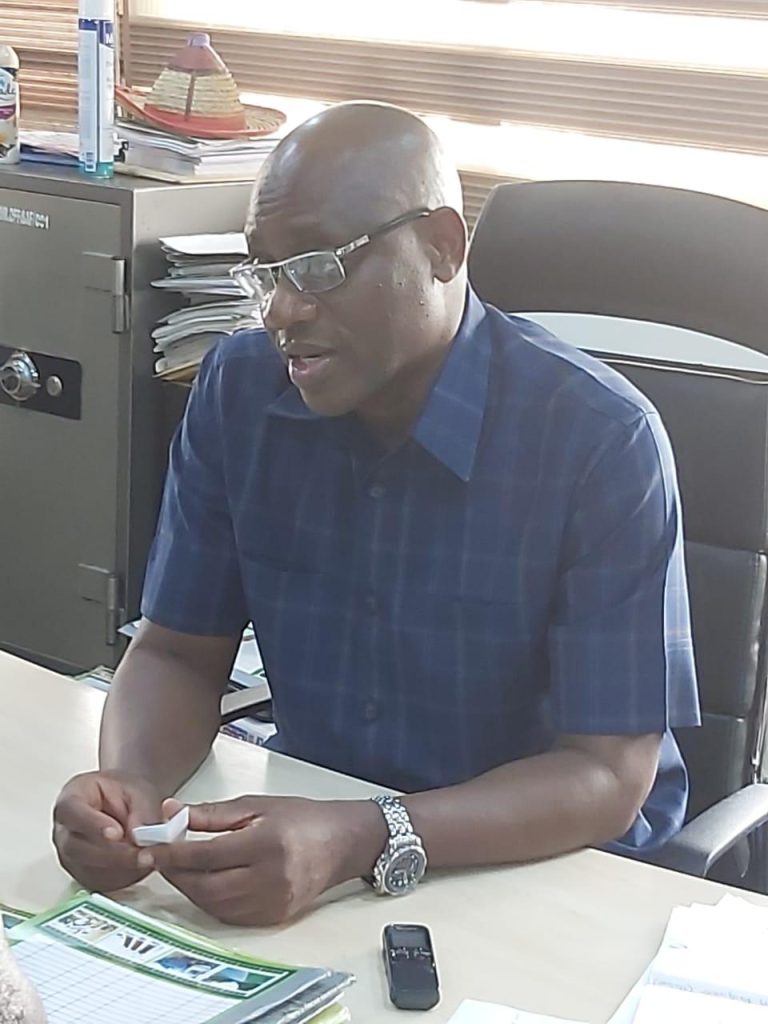
To commemorate World Environment Day (WED), the director of the Abuja Environmental Protection Board (AEPB), Engr. Osilama Braimah has urged the world to embrace sustainable development for future generations.
Braimah delivered this message at the World Environment Day event organised by the AEPB, FCT and Save the Children International in Abuja, themed “Land Restoration, Desertification and Drought Resilience.”
This year’s focus is on deforestation, waste management and sustainable development challenges.
He emphasised that World Environment Day serves as a stark reminder of our existence on a fragile planet, calling on industries, individuals and raw material users to adopt more sustainable practices.
Globally, land degradation poses threats to livelihoods and biodiversity. However, there is hope. This day urges us to come together for land restoration.
According to him, to make a lasting impact, we must support community conservation efforts, embrace eco-friendly land management, advocate for restoration-focused policies, and educate others on environmental stewardship. Together, we can reclaim our Earth and forge a prosperous future.
He mentioned, “In the FCT, we have numerous waste management programs, including the construction of six waste transfer stations. These stations will aid waste minimization, recycling, and extend the life of our landfills. Additionally, we are actively engaged in waste recycling programmes within the city.
“Recently, the FCT Minister and the President commissioned the Abuja Metro line, a significant environmental initiative. By reducing car traffic, this project contributes to pollution control. We appreciate the government’s efforts and urge responsible utilisation of provided resources,” he added.
Earlier, the FCT Minister, Nyesom Wike, emphasised the need to safeguard our planet as it determines our future.
Wike, represented by his senior special assistant on environment and waste management, Dr. Fred Kpakol highlighted the theme’s relevance in prompting reflection on the interplay between human activities and the natural systems sustaining us.
He acknowledged the myriad challenges facing our planet, from climate change to biodiversity loss, focusing on land restoration, desertification and drought as critical issues affecting Nigeria and the world.
Human activities significantly impact natural systems through unsustainable agricultural practices, deforestation, and urbanisation, leading to land degradation and desertification. These disruptions upset ecosystem balance, causing soil erosion, loss of arable land and reduced water availability.
He stressed that environmental considerations are integral to socio-economic development, with infrastructure projects in Abuja aimed at enhancing climate resilience through sustainable practices.
The administration’s goal is to create a resilient city capable of withstanding climate change impacts, providing a high quality of life for residents while preserving green spaces for essential ecosystem services and recreational purposes.
President Bola Tinubu’s administration prioritizes renewing hope in Nigeria through sustainable initiatives.
“This agenda targets the root causes of our challenges, fostering a more prosperous and equitable future for all Nigerians. Environmental health is intertwined with economic prosperity. By restoring degraded lands, ensuring certification, and building drought resilience, we can enhance environmental well-being, drive economic growth, and alleviate poverty,” he stated.
He further emphasised that through collective action, innovative solutions, and unwavering determination, we can restore lands, combat desertification, and enhance drought resilience.
During a lecture, the advocacy, campaign and policy manager of Save the Children International, Ifedilichukwu Innocent highlighted government policies addressing climate change’s impact on children.
He stressed the need for collaborative efforts among governments, organisations, communities and individuals to make tangible progress in land sustainability.
Climate-related challenges like floods, droughts, and extreme weather events have severe repercussions, leading to malnutrition, diseases, and disruptions in children’s lives, necessitating a concerted effort for a sustainable future.
Innocent urged participants to work together as a cohesive team to achieve a sustainable future.

